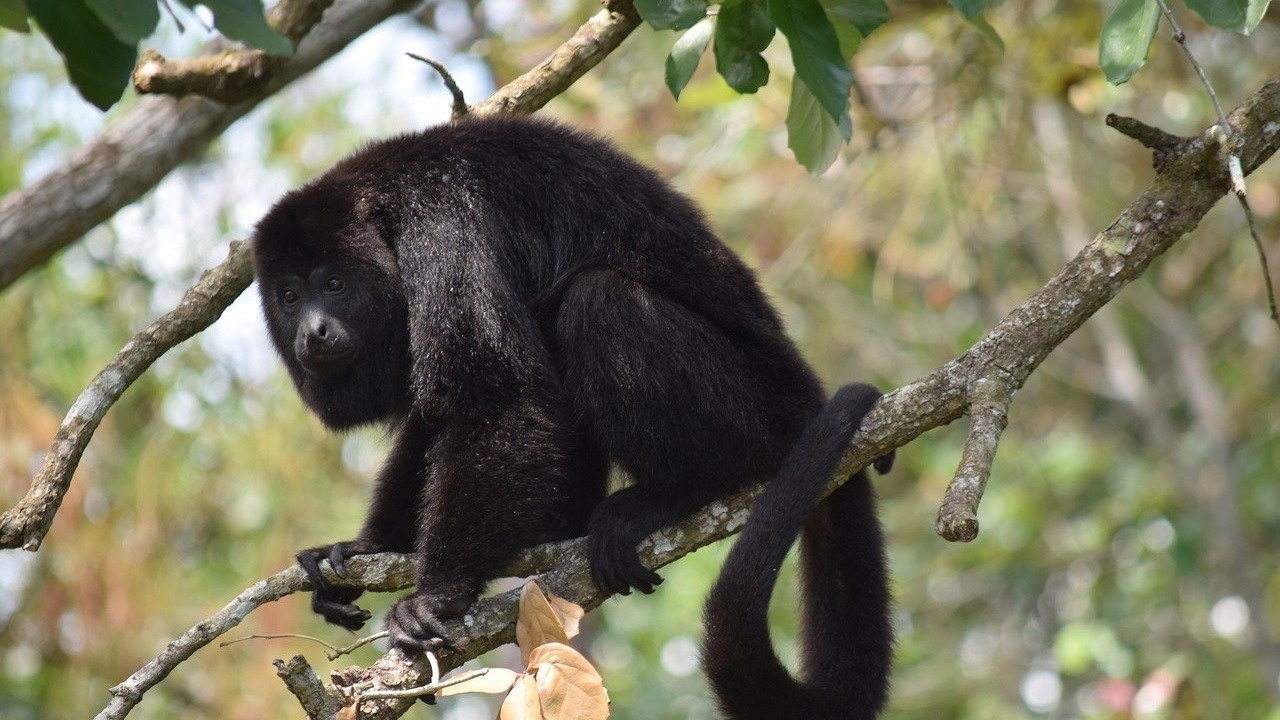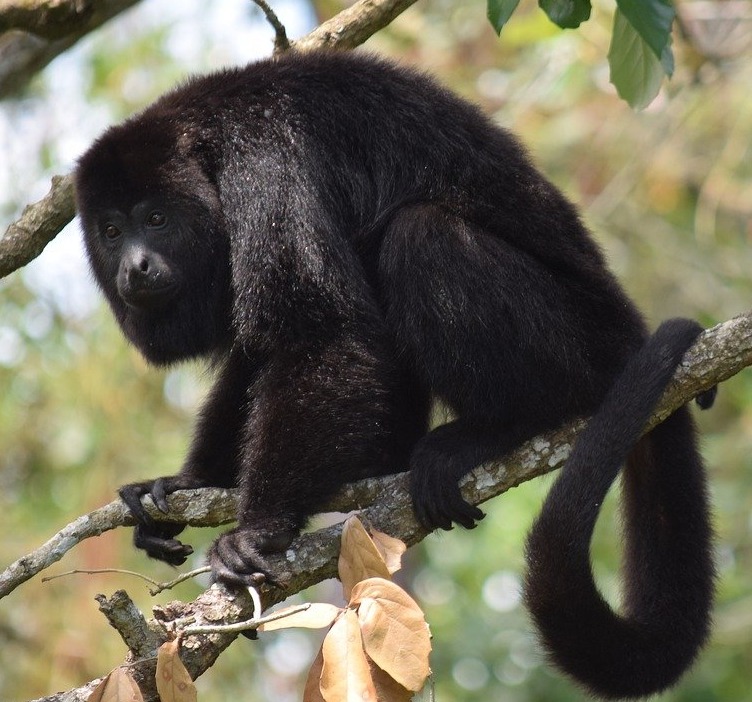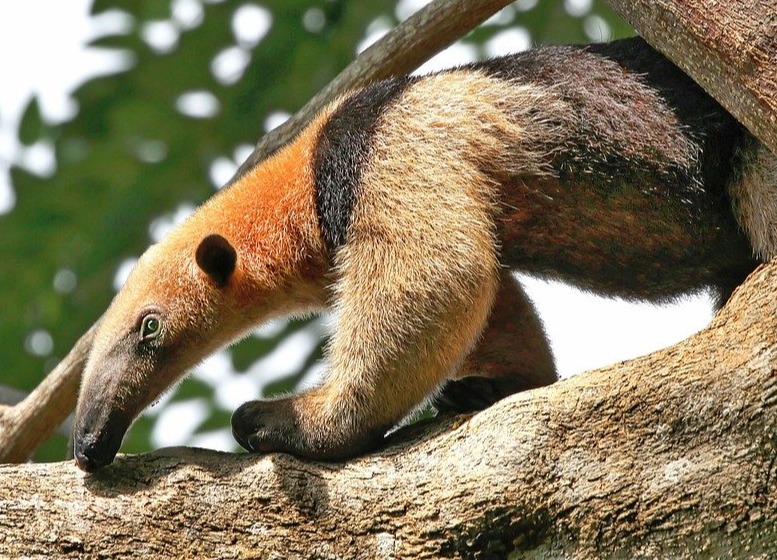
A few years ago, while hiking in the majestic rainforest in Costa Rica I learned how different beings spend most of their existence following habitual activities to protect themselves. 
Spider monkeys, who are usually quiet, especially as compared to the vociferous howling monkeys, make a lot of noise and shake branches when they feel threatened.
The poisonous velvet snake camouflages itself so well that it becomes very difficult to  distinguish it from its surroundings. This lethal reptile stays unmoving for weeks if necessary and then attacks when others least expect it.
distinguish it from its surroundings. This lethal reptile stays unmoving for weeks if necessary and then attacks when others least expect it.
Little frogs eat toxic insects that give them bright colors and a high level of toxicity. By consuming toxic food, their skin acquires colorful designs that warn off potential predators. 
Anteaters hide in trees. Coatis only go out in large groups and when they feel threatened they quickly run away by climbing trees.
These animals engage in all these protective behaviors unconsciously. This is what they instinctively do.
And how about us humans?
How much of our time do we invest protecting ourselves from perceived predators, warning off so called enemies that often include loved ones?
How many of these instinctual strategies do we use in our daily life in habitual and unconscious ways even when our existence is not in danger?
And what are the consequences of all this?
When we feel fear, most of us communicate unconsciously using protective strategies.
 Some of us use aggressive words, raise our voice, argue and put on a show of force, as monkeys do.
Some of us use aggressive words, raise our voice, argue and put on a show of force, as monkeys do.
Some of us stay quiet or try to blend in with the environment even if that means being untrue to ourselves; and once we've had enough we attack others like the velvet snake, leaving those around us in shock.
Or maybe we unconsciously take in poisons from our environment and let them influence us so much that we wear them like little frogs giving others the message that it’s dangerous to get close to us.
Sometimes our tendency is to hide like anteaters by not expressing our feelings, staying busy or isolating ourselves. 
Or perhaps when we feel uncomfortable or insecure we only find courage when we’re with a group, like coatis, but if we get scared we end up running away.
When I reflect back on moments when I used one of these protective strategies, I recognize my actions were based on habitual patterns.
In these uncomfortable or scary moments, my actions didn’t arise from what was really happening for me.
Many times, my actions had nothing to do with the person in front of me. My actions and communication weren’t aligned with my values, either. What I said or did was in sync with fear.
The Language of Survival
When we engage in any of these communication strategies, we speak what I call the Language of Survival.
While the Language of Survival may be useful in situations where our survival is truly at stake, when we use it unconsciously we often experience disconnection and frustration with ourselves and others.
In my own experience and helping others shift out of the Language of Survival, it takes time, conscious effort and compassionate inquiry to transform this kind of language.
Move towards thriving
If you’d like to shift out of the Language of Survival, begin to notice what happens to you when you feel uncomfortable or insecure.
Keeping a journal about how you react in these moments can be helpful. You may find common strategies that emerge in certain circumstances or with certain people.
And remember, unlike monkeys, anteaters or frogs, you, a human being can choose to move away from instinctive reactions to conscious responses. Moving towards conscious responding is an important step to move from surviving in relationships to thriving.
I teach workshops and retreats to help people like you disengage from overusing the language of survival and communicate using language and behaviors that lead to a thriving life and relationships.
Check when the next workshop is here.





